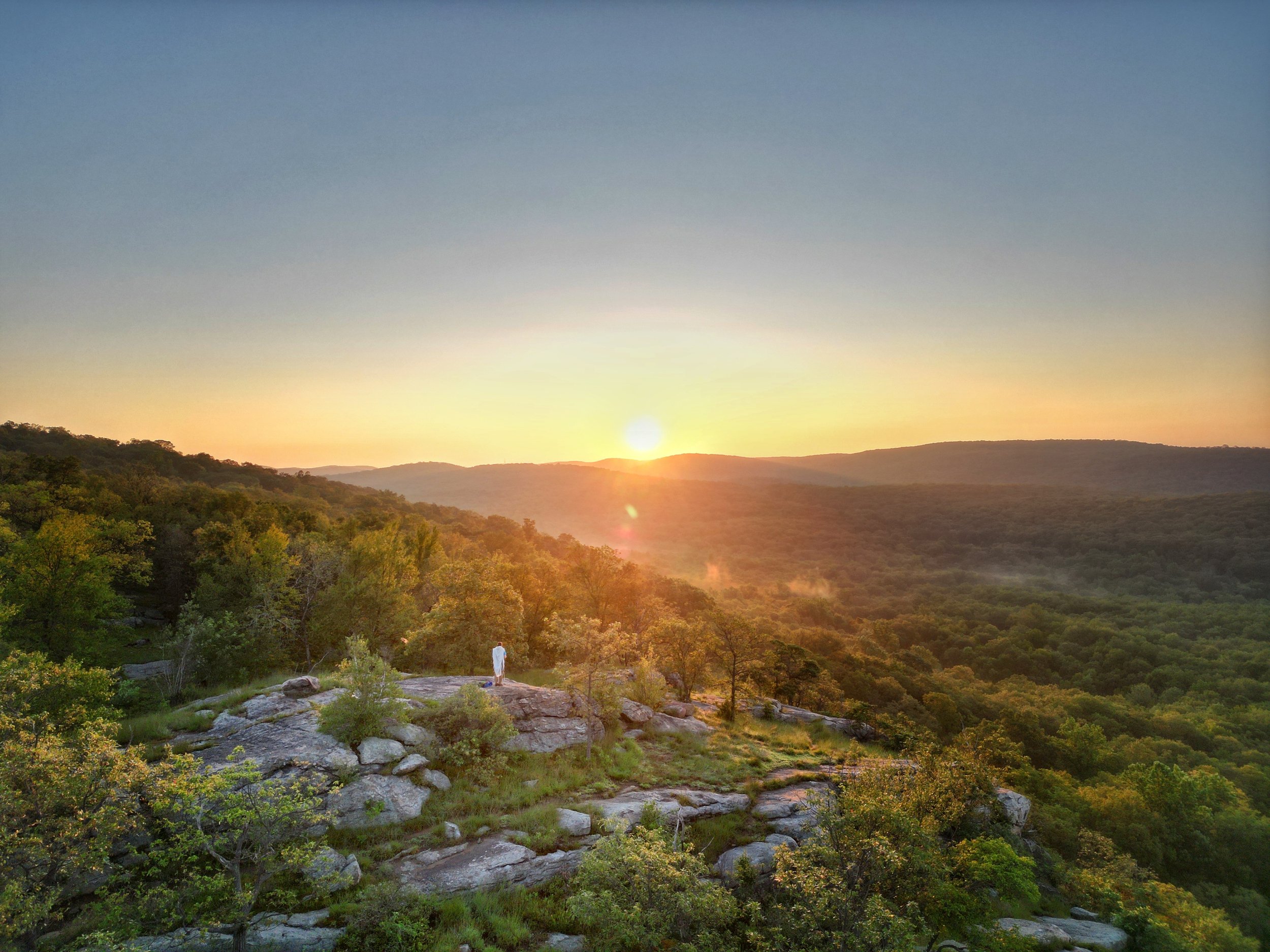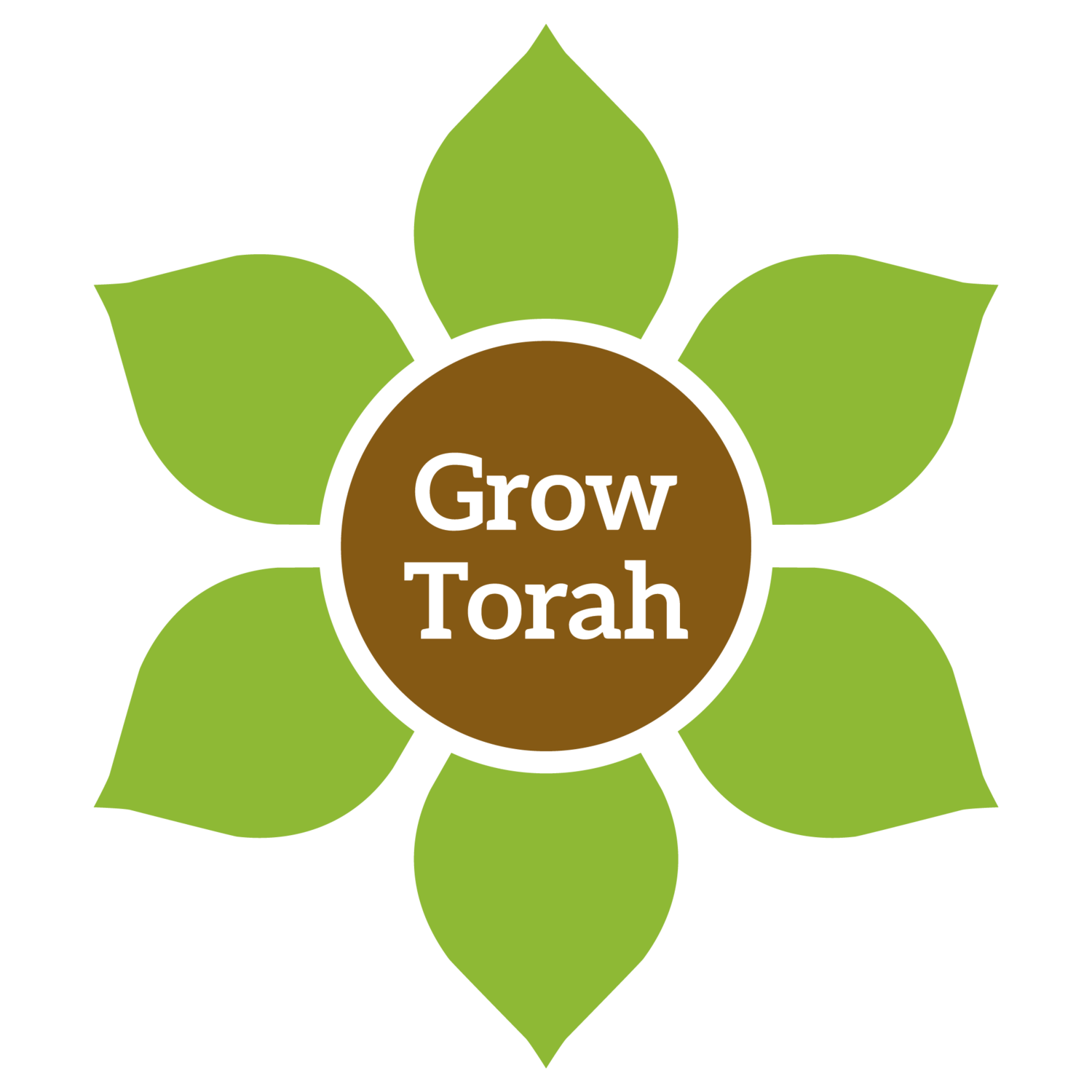
intro to Outdoor Jewish Education
Welcome to my Torah!
As you explore your natural surroundings, wrestle with theses texts.
How do you see these values show up here on the property?
How do these show up in your lives?
Dig in!
1. Incubating Emunah: WOW, this world is amazing!
מה־רבו מעשיך ה' כלם בחכמה עשית מלאה הארץ קנינך
How many are the things You have made, O LORD; You have made them all with wisdom; the earth is full of Your creations.
How do you relate to the above words of the Psalmist? Does this proclamation resonate with you? Whether yes or no, how so?
(א) וַיֹּאמֶר ה' אֶל אַבְרָם לֶךְ לְךָ מֵאַרְצְךָ וגו' (בראשית יב, א), רַבִּי יִצְחָק פָּתַח (תהלים מה, יא): שִׁמְעִי בַת וּרְאִי וְהַטִּי אָזְנֵךְ וְשִׁכְחִי עַמֵּךְ וּבֵית אָבִיךְ, אָמַר רַבִּי יִצְחָק מָשָׁל לְאֶחָד שֶׁהָיָה עוֹבֵר מִמָּקוֹם לְמָקוֹם, וְרָאָה בִּירָה אַחַת דּוֹלֶקֶת, אָמַר תֹּאמַר שֶׁהַבִּירָה הַזּוֹ בְּלֹא מַנְהִיג, הֵצִיץ עָלָיו בַּעַל הַבִּירָה, אָמַר לוֹ אֲנִי הוּא בַּעַל הַבִּירָה. כָּךְ לְפִי שֶׁהָיָה אָבִינוּ אַבְרָהָם אוֹמֵר תֹּאמַר שֶׁהָעוֹלָם הַזֶּה בְּלֹא מַנְהִיג, הֵצִיץ עָלָיו הַקָּדוֹשׁ בָּרוּךְ הוּא וְאָמַר לוֹ אֲנִי הוּא בַּעַל הָעוֹלָם. (תהלים מה, יב): וְיִתְאָו הַמֶּלֶךְ יָפְיֵךְ כִּי הוּא אֲדֹנַיִךְ. וְיִתְאָו הַמֶּלֶךְ יָפְיֵךְ, לְיַפּוֹתֵךְ בָּעוֹלָם, (תהלים מה, יב): וְהִשְׁתַּחֲוִי לוֹ, הֱוֵי וַיֹּאמֶר ה' אֶל אַבְרָם.
(1) (1) Hashem said to Abram, "Go you forth from your land…" … Rabbi Yitzchak said: this may be compared to a man who was traveling from place to place when he saw a castle full of light.
He said, "Is it possible that this castle lacks a person to look after it? The owner of the building looked out and said, “I am the owner of the castle.” Similarly, because Abraham our father said, “Is it possible that this castle has no guide, no one to look after it?," the Holy Blessed One looked out and said to him, “I am the Master of the Universe.” … Hence, God said to Avraham, Lech Lecha.
How do you encounter beauty in this world? Is it similar or different from how the midrash explains Avraham’s encounter?
What happens to your faith when something beautiful is destroyed or taken away?
2. Environmental Stewardship - How do we “work” and “protect”?
(טו) וַיִּקַּ֛ח ה׳ אֱלֹקִ֖ים אֶת־הָֽאָדָ֑ם וַיַּנִּחֵ֣הוּ בְגַן־עֵ֔דֶן לְעָבְדָ֖הּ וּלְשָׁמְרָֽהּ׃
The LORD God took the man and placed him in the garden of Eden, to till it and tend it.
How do you interpret “Work” and “Till”?
בשעה שברא הקדוש ברוך הוא את אדם הראשון, נטלו והחזירו על כל אילני גן עדן, ואמר לו: ראה מעשי כמה נאים ומשובחין הן, וכל מה שבראתי, בשבילך בראתי, תן דעתך שלא תקלקל ותחריב את עולמי, שאם קלקלת אין מי שיתקן אחריך.
At the time that the Holy One created the first man, He introduced him to every tree in the Garden of Eden, and said to him, ‘See how wonderful and pleasant these trees are. And all of this I have created for you; therefore take great care that you do not damage and destroy My world, for if you do there is no one else to put right what you have destroyed.’
How does this charge sit with you? What comes to mind when you think of your responsibility to not destroy this world?
3. Compassion for Creatures or dominion over them?
תניא ר' גמליאל ברבי אומר (דברים יג, יח) ונתן לך רחמים ורחמך והרבך כל המרחם על הבריות מרחמין עליו מן השמים וכל שאינו מרחם על הבריות אין מרחמין עליו מן השמים
Rabbi Gamliel, son of Rabbi Yehuda HaNasi, says: The verse that states: “And He will show you mercy and have compassion on you and multiply you” (Deuteronomy 13:18) teaches us that anyone who has compassion for God’s creatures will receive compassion from Heaven, and anyone who does not have compassion for God’s creatures will not receive compassion from Heaven.
How do you show compassion for creatures? Are there situations where your compassion for creatures is challenged? How do you navigate those situations?
(כו) וַיֹּ֣אמֶר אֱלֹקִ֔ים נַֽעֲשֶׂ֥ה אָדָ֛ם בְּצַלְמֵ֖נוּ כִּדְמוּתֵ֑נוּ וְיִרְדּוּ֩ בִדְגַ֨ת הַיָּ֜ם וּבְע֣וֹף הַשָּׁמַ֗יִם וּבַבְּהֵמָה֙ וּבְכָל־הָאָ֔רֶץ וּבְכָל־הָרֶ֖מֶשׂ הָֽרֹמֵ֥שׂ עַל־הָאָֽרֶץ׃
(26) And God said, “Let us make man in our image, after our likeness. They shall rule the fish of the sea, the birds of the sky, the cattle, the whole earth, and all the creeping things that creep on earth.”
If we must show compassion, how do we also rule over them?
(ה) וירדו בדגת הים יֵשׁ בַּלָּשׁוֹן הַזֶּה לְשׁוֹן רִידוּי וּלְשׁוֹן יְרִידָה; זָכָה, רוֹדֶה בַחַיּוֹת וּבַבְּהֵמוֹת, לֹא זָכָה, נַעֲשֶׂה יָרוּד לִפְנֵיהֶם וְהַחַיָּה מוֹשֶׁלֶת בּוֹ:
(5) וירדו בדגת הים AND THEY SHALL HAVE DOMINION OVER THE FISH … [AND OVER THE BEASTS] — The expression וירדו may imply dominion as well as descending — if he is worthy he dominates over the beasts and cattle, if he is not worthy he will sink lower than them, and the beast will rule over him (Genesis Rabbah 8:12).
What is the effect on our perspective if we “rule over” the creatures? Does that conflict with our charge to show compassion for them?
Thank you for adventuring and learning together with GrowTorah! If you’d like to learn more environmental Torah, visit our library, linked below:

